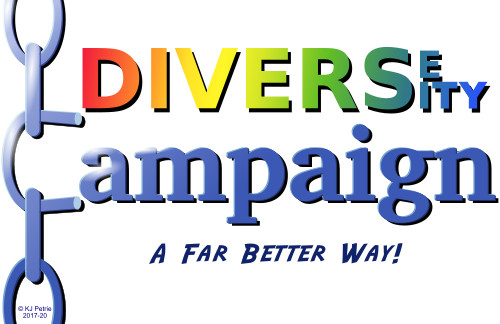Opinion
6th September 2022
Deconstructing a fallacious definition
According to the Power & Privilege Definitions handout issued by Vanderbilt University, Tenessee in the United States, “A person of any race can have prejudices about people of other races, but only members of the dominant social group can exhibit racism because racism is prejudice plus the institutional power to enforce it.”
I see two problems with this argument: firstly, that Race had just been defined as “...an invention... a way of arbitrarily dividing humankind into different groups...” and, secondly, that it ties the concept of power to only one of many possible axes.
If Race is an arbitrary invention, using it as the basis of deciding the applicability of a term relating to unfair discrimination on this arbitrary ground is attempting to present an imagined difference as a real one which can have a real, rather than unjustly imagined, effect. If Race is not real, it can only have imagined relevance and while the application of that imagined relevance to a situation is unjust, that same injustice must extend to using the concept as a real definition.
It could be argued the definition of Race follows its statement that it is not real with a claim that its effects are real, but that can only be so if people practice Racism which, at best, would make the argument circular.
More seriously, the idea Institutional Power can only derive from membership of a dominant group cannot stand the simplest scrutiny. For power derives not from membership of a group, but from the circumstances of the relationship between two or more individuals. Two examples will serve to illustrate the problem.
Let us assume a member of a minority group runs a small business and is looking for a new worker and a member of the majority group applies for the job. For one of many possible reasons, perhaps because the prospective employer feels uncomfortable having a member of a different group under him or maybe because he holds a deep resentment against the majority group, the applicant is rejected and does not get the job. Where was the power in that situation – with the member of the majority group or with the business owner? The prejudice was enforced because the enforcer had power, but the power did not derive from the proportions of the arbitrary groups in society. It derived from the relationship between employer and employee.
My second example would be that when considering vulnerability to abuse, it is generally assumed (certainly in UK law) that children are inherently vulnerable because of their small stature and limited experience. However, that might not stop an adolescent boy who has grown larger and stronger than his mother bullying her if he is minded to do so.
It should be apparent from these two examples that power does not necessarily derive from group membership but simply arises from particular circumstances. There might well be tendencies for the power more often to flow one way than the other, but that cannot rule out the possibility of situations contrary to such a trend and therefore ruling out the entertainment of that possibility is clearly invalid.
Diverse Diversity has no definition of Racism because it does not define social injustice in terms of groups, but in terms of unfair treatment when decisions are taken on grounds not directly relevant to the particular case. Group identities would be seen as unnecessarily divisive and because of their arbitrary nature unhelpful in solving the problem. That is not to say they might not be useful in examining how well society functions and measuring outcomes with a view to spotting problems, but any such findings would need further analysis to establish the real underlying cause and remedies would need to address those rather than the superficial symptoms if they are not to create alternative forms of injustice. A fair society is not one where privileges are swapped around in a vague effort to balance injustices, but one which seeks to eliminate injustice at source.

